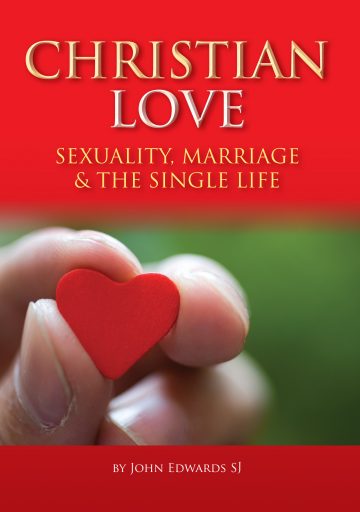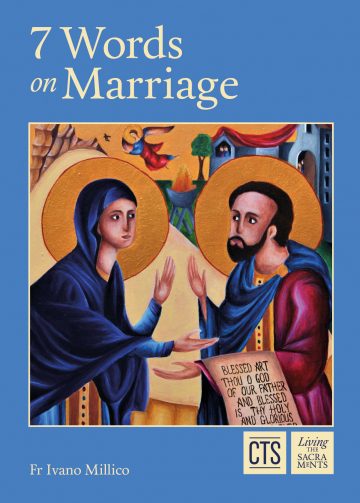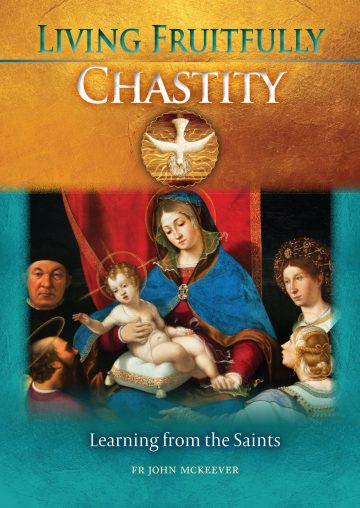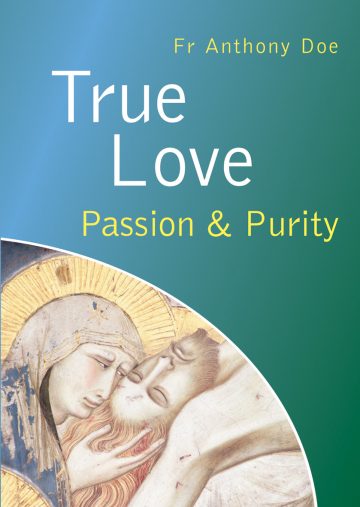It is a great pity that our sex-obsessed culture with its pursuit of pleasure as the be all and end all of a fulfilling life has banished chastity as something outdated or even laughable, suitable only for old maids, prudes and simpletons. So many people in their pursuit of sex are just like St Augustine: they are searching for love and for happiness. They are enthralled by physical beauty and charm but the greatest beauty of all is inside us, in our character. Love, beauty and happiness cannot be truly found apart from chastity.
True love is chaste: it respects oneself and one’s beloved and so places limits on desire so that the other is truly loved for their own good and not just as a means of satisfying one’s own needs or desires. Chastity is also beautiful because it reflects the perfect love of heaven where everything is beautiful and where there is no marrying or begetting children but where human beings live and love like the angels (Mt 22: 29-30). And chastity is happiness because “love” that’s really barely disguised lust or self-indulgence causes, deep down, a disgust with one’s selfishness or enslavement to animal appetites. Without the self-respect that comes from virtuous living, one cannot be truly happy. Even after the sweetest illicit sexual pleasure, there is always awaiting any soul that has not completely killed his conscience a certain emptiness, disappointment and sense of guilt: the bitter dregs of the sweetest cup!
This emptiness is not a uniquely Catholic, or even religious, phenomenon. It is a natural human sensation and as such it has been well documented in great literature. One striking example is Hermann Hesse’s novel, Narcissus and Goldmund, where the young student Goldmund wanders the country searching for fulfilment in all forms of beauty and ecstasy, including innumerable illicit love affairs. Hesse describes Goldmund’s passion and rapturous anticipation before his sexual encounters and the sadness that inevitably follows each one, for example: “In both of them a great sadness welled up, from which they fled into sleep”. Eventually, Goldmund realises his sadness comes from the fact that sexual pleasures do not last. He is aiming for something great, even eternal, but finds only a pleasure that fails to satisfy because it is fleeting yet mercilessly compels him to seek it again and again.
The love of women, sexual games – these had priority for him, and the core of his frequent bouts of melancholy and jaded spirits grew from his knowledge of the fleeting nature of lust. The swift, delicious surge of ecstasy, its brief, rapturous blaze, its rapid extinction – this seemed to him to comprise the core of all experience; this became for him the image of all bliss and all suffering.
No wonder Shakespeare could personify all lust in Cleopatra with these few words: “She makes hungry where most she satisfies”.
Banish the Dark Clouds
Real life abounds with evidence to corroborate literature’s insights into the bond between chastity and happiness. Dawn Eden, the renowned author on chastity, was raised a secular Jew, without any guilt about masturbation yet she still felt uncomfortable and associated it with a kind of despair:
It was, at best, a wilful self-medication against the pain of loneliness, and it always came with a cost. The cost was having to repress the ever-deepening awareness that all the physical pleasure in the world could not compensate for the absence of someone who would love me for who I was.
A simple internet search for the terms “masturbation” and “feeling guilty” will show she is far from alone. St Josemaría Escrivá (1902-1975), the founder of Opus Dei, was a spiritual director to many souls. From them, he knew the sufferings that unchastity can bring. He wrote, “When you have sought the company of a sensual satisfaction, what loneliness afterward!”
The truth about love and chastity is embedded in our human nature. One can try to dull the voice of the natural law in one’s conscience by trying to rationalise the guilt away, saying, “It’s not really a big sin” or “Sure, everybody’s doing it”. Or one can try to chase away that nagging sense of unease and unhappiness by drinking or using drugs, by seeking comfort in worldly things such as possessions, parties and exotic holidays, or by spending a fortune on “non-directive” counselling or psychotherapy where one wants to be reassured “You’re ok as you are”. One can even try to quell the misery by seeking more and more sex, a more powerful orgasm, a better partner. All to no avail! As a wise priest once said, “I have never met a truly happy person who was unchaste or a chaste person who was generally profoundly unhappy”.
Fruits are something to be savoured and enjoyed. So too with chastity as a fruit of the Holy Spirit: it is a fruit that is beautiful and pleasing to the mind. It has a sweet savour and brings its own enjoyment. It is fulfilling and healthy, both physically and spiritually. It helps banish the dark clouds of melancholy and depression.
The Gift of Chastity
Chastity is not merely the avoidance of sin. It is a virtue to be desired and cultivated simply for its own sake, because it is good and makes us love more genuinely, becoming more like Christ. Chastity, as a fruit of the Holy Spirit, is an inspired taste or attraction. It means seeing the beauty of true love and, being enraptured by the beauty of truth, pursuing it wholeheartedly. Chastity cannot live without beauty, otherwise it would not be desirable. Indeed, how could anything the Spirit creates in us not be loveable and desirable?
We still have a tendency to think of chastity in negative terms as a compendium of sexual prohibitions. A long list of “Thou shalt nots”, however true it may be, is not particularly motivating or inspiring. And if we focus only on our failures or on the height of the challenges and temptations that our weakness must face, we will be tempted to despair and surrender. We need a great “Sursum corda!”: “Lift up your hearts!” And to lift them up to the Lord: to Christ who is himself perfect Love, the most worthy object of our desire and the model of perfect chastity.
We should look to God, the Creator of the body and of human love, who made these things to be good. Chastity must have been one of the things St Paul had in mind when he wrote: “Whatever is true, whatever is noble, whatever is right, whatever is pure, whatever is lovely, whatever is admirable – if anything is excellent or praiseworthy – think about such things” (Ph 4:8).
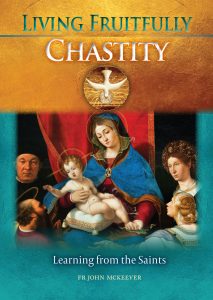 This blog is extracted from Living Fruitfully: Chastity. Drawing from the lives and wisdom of the saints, this title addresses the misunderstood subject of chastity, exploring how we are all called to live a life of chastity in our particular state of life.
This blog is extracted from Living Fruitfully: Chastity. Drawing from the lives and wisdom of the saints, this title addresses the misunderstood subject of chastity, exploring how we are all called to live a life of chastity in our particular state of life.


